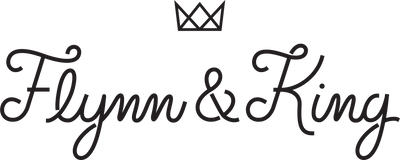Beauty and the Bees: A Pollinator's Garden and Other Tips For a Beautiful Future
Image via beeculture.com
In celebration of World Honey Bee Day on Saturday August 18, we're creating some buzz on bees. If you like nice luxuries like food and clothing, read on: bees are on the endangered list and not only bees, according to a global assessment made by the U.N. over 40% of pollinator invertebrates are also facing extinction due to pesticides, disease, and habitat loss. Their decline is a serious threat to not only you, but to the world. The biz of bees, a multi-billion dollar industry of agriculture-related products like Flynn&King skincare with botanical ingredients, your morning cup of coffee, your grocery store, the clothes you wear, all depends on the free labor of bees and other pollinator friends like butterflies, bats, beetles, and birds. It seems that everything we deem important has to do with bees. Before you go stocking up on rations like the end is nigh, me-thinks it's not too late! Growing a pollinator's garden and a few other of these simple tips from the Honeybee Conservancy and USDA Forest Service will help make an impact on bringing pollinators back.
If you grow it they will come. It's easy to turn any small patch of land or container garden into a pollinator-friendly paradise and in some cases, suburban and city gardens have shown to have more pollinator diversity than nearby fields. I remember living on the 3rd floor of a Brooklyn brownstone not too long ago, and successfully grew cherry tomatoes and jalapenos on my window ledge, surprised at the fact bees and small flies traveled so high up to regularly visit my mini garden when its flowers were in bloom. As long as there's beautiful plots (and pots) of flowers, fruits, and vegetables, pollinators will come hungry. Grow local native plants to attract local fuzzy friends, while herbs and flowers like echinacea, oregano, thyme, beebalm, lemon balm, sage, borage, sunflowers, yarrow, coneflowers, butterfly bush, and black-eyed susans not only are attractive to the neighborhood, all pollinators love them too.
A few other tips include:
- Reducing or eliminating your contribution to the use of pesticides.
- Eating more locally growing plants and eating organic.
- Put bees to work! Support local bees and beekeepers to encourage sustainable farming. Every Recover Balm we make has beeswax sourced from New York or Brooklyn's local bee farmers.
- Conserve resources in general. Less waste makes for cleaner future.

